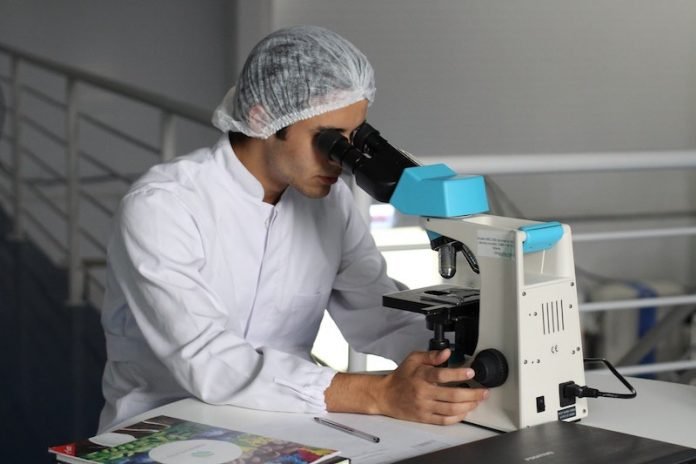
Scientists from Boston Children’s Hospital found why COVID-19 causes severe inflammation in some people, leading to acute respiratory distress and multi-organ damage.
They also found that antibodies that people develop when they contract COVID-19 can sometimes lead to more inflammation, while antibodies generated by mRNA COVID-19 vaccines seem not to.
The research is published in Nature and was conducted by Judy Lieberman et al.
In the study, the team aimed to understand what distinguishes patients with mild versus severe COVID-19.
Many inflammatory markers are elevated in people with severe disease, and that inflammation is at the root of disease severity.
They analyzed fresh blood samples from patients with COVID-19 coming to the emergency department at Massachusetts General Hospital.
They compared these with samples from healthy people and patients with other respiratory conditions. They also looked in lung autopsy tissue from people who had died from COVID-19.
The team found that SARS-CoV-2 can infect monocytes — immune cells in the blood that act as “sentinels” or early responders to infection — as well as macrophages, similar immune cells in the lungs.
Once infected, both types of cells die a fiery death (called pyroptosis) that releases an explosion of powerful inflammatory alarm signals.
The team found in the infected patients, about 6 percent of blood monocytes were dying an inflammatory death. That’s a large number to find, because dying cells are rapidly eliminated from the body.
Examining the lung tissue from people who died from COVID-19, they found that about a quarter of the macrophages in the tissue were dying.
When the researchers studied the cells for signs of SARS-CoV-2, they found that about 10 percent of monocytes and 8 percent of lung macrophages were infected.
The fact that monocyte and macrophages can be infected with SARS-CoV-2 was a surprise, since monocytes don’t carry ACE2 receptors, the classic entry portal for the virus, and macrophages have low amounts of ACE2.
The team thinks SARS-CoV-2 infection of monocytes might have previously been missed in part because researchers often study frozen blood samples, in which dead cells do not show up.
The study also showed that while SARS-CoV-2 was able to infect monocytes and macrophages, it wasn’t able to produce new infectious viruses.
The researchers believe these findings may have implications for using monoclonal antibodies to treat COVID-19, helping to explain why the treatment works only when given early.
Sign up for our newsletter for more information about this topic.
If you care about COVID, please read studies about a new drug that could prevent COVID-19, and vitamin D can help reduce inflammation.
For more information about COVID, please see recent studies that hemp compounds may help prevent COVID-19, and results showing cannabis CBD may help protect against COVID-19.
Copyright © 2022 Knowridge Science Report. All rights reserved.



